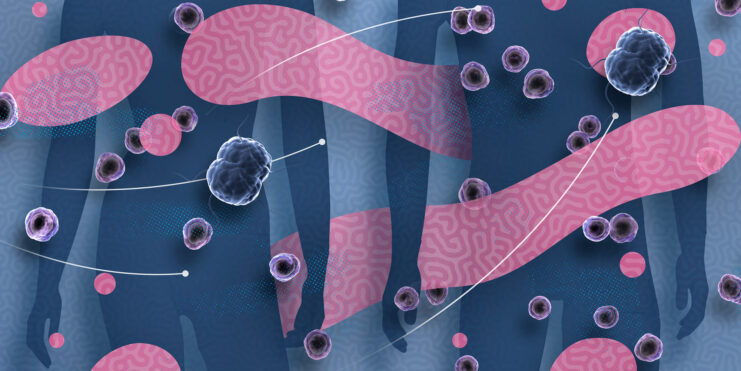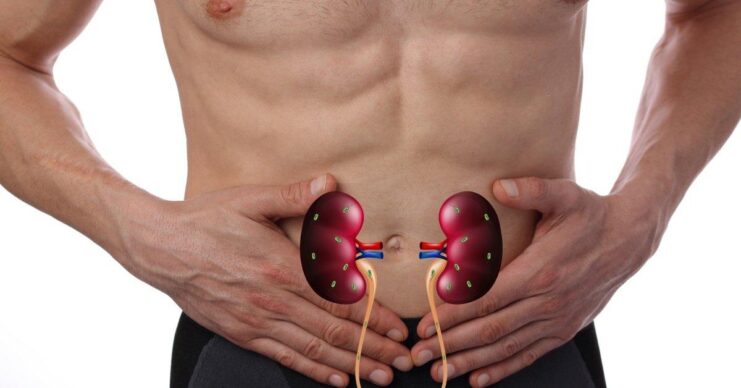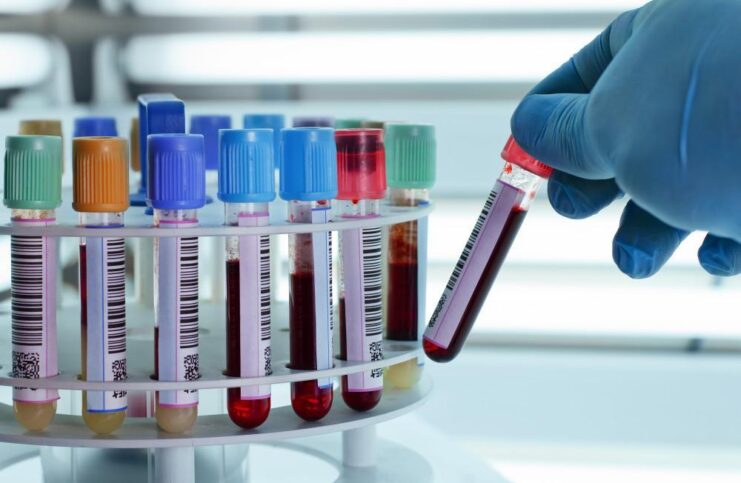Unlike women, men do not normally have spontaneous discharge from the genitals. So when this happens, men naturally get extremely anxious and paranoid. Almost always, they would relate this to diseases they are most terrified of such as HIV and cancer.
“Do I have HIV?”, “Do I have cancer?”, “What should I do?”, “Is it curable?”, “Where did I get this from?”
These are some of the most common questions men ask when they come to see us. Of course, Google is our best friend these days. Most people would have already done some internet search and had some ideas of what it might be before they speak to a doctor. Unfortunately, as human beings, we always think of the worst case scenario. Let us explain penile discharge in details so you have a better understanding of this symptom.
What is penile discharge?

The small opening at the end of the penis is called urethral opening. Urethra is the tube that carries urine and semen out of your body into the environment. Yes, only urine and semen comes out from there.
If you have a fluid other than urine or semen that comes out from your urethral opening, it is abnormal.
This is when you know you have penile discharge.
It is the result of inflammation of the urethra.
An abnormal discharge may be watery (clear), white, yellow, green or even bloody.
I also have other symptoms. Are they related?
Most likely. Along with penile discharge, you may also have:
- painful urination
- frequent need to pass urine
- rash in the genital area
- swollen lymph nodes in the groin
What causes penile discharge?
Penile discharge almost always is a sign of infection. Before thinking too far and relating this to diseases such as HIV, let us look at the common infective causes of penile discharge.
Gonorrhoea

This is one of the most common STDs around. It always manifests as white/yellow/green discharge from the penis, and painful urination.
Unlike men, only 10-20% of women with gonorrhoea have an abnormal discharge. It is curable with antibiotics.
If left untreated for a period of time, it may lead to infertility. It may also enter the bloodstream and cause problems to the skin and joints.
Abnormal penile discharge is almost always caused by STDs.
Non-specific urethritis (NSU) or non-gonococcal urethritis (NGU)
These two terms essentially mean the same thing. Urethritis basically means inflammation of the urethra (refer to “what is penile discharge”). NSU/NGU means urethritis that is caused by anything other than gonorrhoea.
Rapid Chlamydia & Gonorrhoea Screening
NSU is caught during sex. Therefore, it is also a part of STD screening. It is, in fact, the most common cause of penile discharge. Men aged between 20 and 35 years are most commonly affected. Several different organisms can cause NSU:
- Chlamydia trachomatis
- Mycoplasma genitalium
- Ureaplasma urealyticum
- Trichomonas vaginalis
- Herpes simplex (rare)
These names may sound very complicated but a full STD screening would be able to detect these organisms and pinpoint the cause of the penile discharge. However, no cause can be found sometimes.
Urinary Tract Infection (UTI)

UTI is a common term used to describe infection in any part of the urinary tract (ureter, bladder, urethra). It could be STD or non-STD. Non-STD bacteria that cause a UTI include E. coli, Klebsiella and Staphylococcus saprophyticus. Again, these fancy names may sound scary but they can be easily detected in a urine sample and treatable with antibiotics.
UTI is not common in men. If diagnosed with a UTI, they will require further investigations such as an ultrasound of the urinary tract system to find out the underlying problem.
What should I do?
See a doctor
As mentioned earlier, penile discharge is not normal. Consult a doctor for a proper assessment. The doctor will definitely speak to you about your sexual history.
You will also require some tests to find out what the culprit is. STD screening is essential because most penile discharges are related to STDs.
You will most likely be advised to have a comprehensive STD screening done to rule out all possibilities.
See a doctor, get tested and treated!
Abstain from sex
Hold off all sexual activities (including oral and anal sex) until your test results are out and you have been adequately treated.
It is best to wait seven days after you have had your treatment course. This is important because if you have been infected with STD, you may potentially infect your partner(s) and cause more problems.
If you REALLY have to engage in sexual intercourse, do use a condom, although the condom is not 100% safe and you may still infect your partner(s).
Inform your sexual partner(s)
This is called contact tracing. If your penile discharge is due to an STD, your sexual partner(s) may have been infected as well – you may have got it from your partner(s), or vice versa. This includes your sexual partner(s) for the past 6 months.
Tell your sexual partner (s) to see a doctor to get tested even if they do not have any symptoms.
As you can see, HIV and cancer are not mentioned anywhere in this discussion.
That does not mean that you should take penile discharge lightly.
We would like to stress again that penile discharge is NOT NORMAL. If you have this symptom, it is important to get yourself assessed and treated properly so you do not run into more severe problems later on.
Importance of Regular STD Testing

Regular STD testing is a key component of maintaining good sexual health, particularly for those who are sexually active. It’s not just about your health; it’s also about the health of your current and future sexual partners.
Many sexually transmitted diseases (STDs) can be present in the body without causing any noticeable symptoms. Therefore, routine screening is crucial for detecting and treating these infections early. By doing so, you can prevent serious health complications down the line.
STD testing can be a simple, quick, and confidential process. Most STDs are detectable through blood or urine tests, and many can be treated effectively with medications, especially if caught early.
Remember, knowledge is power. Being aware of your STD status provides you with the necessary information to protect your health and the health of your partner(s). Regular STD testing should be a normal part of your healthcare routine if you are sexually active.
Moreover, having regular STD tests promotes open and honest communication about sexual health with your partners. This can lead to more trust and understanding in your relationships.
The Long-Term Effects of Untreated
Many sexually transmitted diseases (STDs), if left untreated, can have severe long-term health effects. For instance, untreated gonorrhea and chlamydia can lead to pelvic inflammatory disease in women and epididymitis in men, both of which can result in infertility.
Syphilis, if not treated, can damage the heart, brain, and other organs, leading to serious complications. Human Papillomavirus (HPV) can lead to various forms of cancer, including cervical, oral, and anal cancer.
Debunking Myths about STDs and Penile Discharge

There are many misconceptions about STDs and penile discharge. One common myth is that you can’t get an STD from oral or anal sex, which is untrue; any form of sexual contact can transmit. Another myth is that if you have an STD, you’ll know it.
Many STDs can be asymptomatic, meaning they show no symptoms. Regular testing is the only sure way to know if you have an STD. Also, people often believe that penile discharge always signifies , which is not always the case.
While it often indicates an infection like gonorrhea or chlamydia, it could also be due to non-STD related infections. Always consult a healthcare professional if you have any concerns.
The Psychological Impact of Penile Discharge and STDs
Experiencing penile discharge or being diagnosed with an STD can have significant psychological effects. It’s common to feel a range of emotions, including fear, anxiety, embarrassment, or shame.
It’s important to remember that having an STD is not a reflection of your character or worth. Millions of people deal with these infections, and there’s no shame in seeking treatment.
If you’re struggling, consider reaching out to a mental health professional who can provide support and help you navigate your feelings. Remember, it’s okay to seek help, and there are resources available for you.
FAQ
1. What should I do if I notice penile discharge?
If you notice any unusual discharge from your penis, it’s important to seek medical advice immediately. This could be a sign of an infection, such as a sexually transmitted disease (STD). A healthcare professional can provide a diagnosis and appropriate treatment. You should also refrain from sexual activity until you’ve been examined and given the all-clear by a healthcare professional to prevent potentially spreading the infection.
2. Can condoms completely prevent STDs and penile discharge?
While condoms greatly reduce the risk of contracting or spreading STDs, they do not provide 100% protection. Some STDs, like herpes or HPV, can be transmitted through skin-to-skin contact, even when a condom is used. Nonetheless, using a condom every time you have sex is a key step in maintaining sexual health and preventing STDs and their symptoms, such as penile discharge.
3. Can I get an STD even if I don’t have multiple sexual partners?
Yes, even individuals with only one sexual partner can contract an STD if their partner is infected. This is why it’s important to have open and honest conversations about sexual health with your partner, and why regular STD screenings are recommended for all sexually active individuals, regardless of the number of partners they have.
4. Can STDs go away on their own?
Most STDs do not go away without treatment. Bacterial STDs, such as chlamydia and gonorrhea, require antibiotics for treatment. Viral STDs, such as herpes or HIV, cannot be cured, but their symptoms can be managed with medication. If you suspect you have an STD, it’s crucial to seek medical care and follow the prescribed treatment plan.
5. Is there a vaccine for STDs?
Yes, there are vaccines for certain STDs. The HPV vaccine, for instance, can protect against the types of HPV most likely to cause genital warts and cervical cancer. The Hepatitis B vaccine can prevent this liver infection, which can be sexually transmitted. However, vaccines aren’t available for all STDs, emphasizing the importance of prevention methods like condom usage and regular testing.
6. Can untreated STDs lead to more serious health problems?
Yes, untreated STDs can lead to serious health complications. For instance, untreated syphilis can eventually affect the brain and heart, while untreated gonorrhea and chlamydia can lead to pelvic inflammatory disease in women and epididymitis in men, both potentially causing infertility. Certain types of HPV can cause cancer. Regular testing and early treatment are crucial to prevent such complications.
7. How often should I get tested for STDs?
The frequency of STD testing can depend on various factors, including your sexual behavior, number of partners, and whether you use protection. In general, sexually active individuals should consider getting tested at least once a year. However, those with multiple partners or who engage in unprotected sex should consider more frequent testing. Always discuss with your healthcare provider to determine the best testing schedule for you.
Conclusion
In conclusion, understanding the importance of regular STD testing, recognizing the symptoms such as penile discharge, and debunking the common myths about STDs are crucial steps toward maintaining good sexual health. It’s essential to remember that many STDs can be asymptomatic, making regular testing a necessity for early detection and treatment, regardless of the presence of symptoms.
Furthermore, while penile discharge is often associated with STDs, it can also be caused by non-sexually transmitted infections. Regardless, any signs of abnormal penile discharge should prompt immediate consultation with a healthcare provider. Ensuring open communication with your sexual partner(s), practicing safe sex, and seeking immediate medical attention when concerns arise are key to preventing and managing STDs and their potential long-term effects.
Related Posts:
- What Does Sperm Cramps Mean in Men? Should You Be…
- Hematospermia (Blood in the semen) Should You Be Worried?
- Rash on Penis – Penile Rash: Reclaim Your Confidence
- Understanding Vaginal Discharge: What's Normal and…
- Curved Monitor: Pros And Cons - Should You Get It Or Not?
- Vaginal Lumps and Bumps: What Every Woman Should Know












